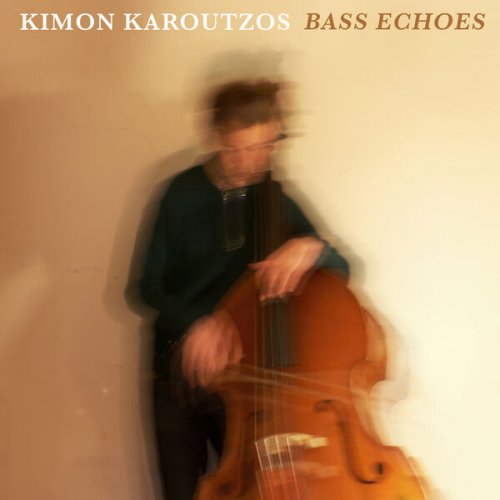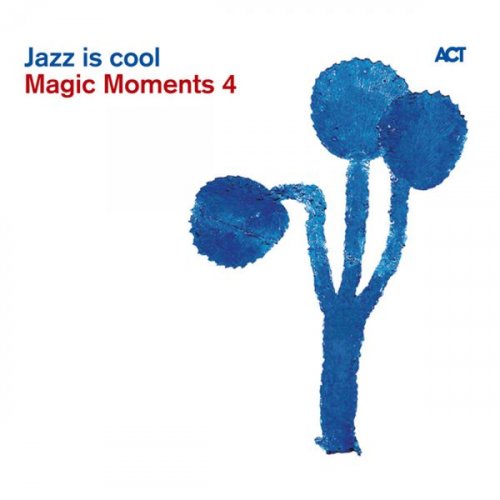Franco Fagioli, Armonia Atenea & George Petrou - Rossini (2016) [Hi-Res]

Artist: Franco Fagioli, Armonia Atenea, George Petrou
Title: Rossini
Year Of Release: 2016
Label: Deutsche Grammophon
Genre: Classical
Quality: FLAC (tracks, booklet) [96kHz/24bit]
Total Time: 75:20 min
Total Size: 1.41 GB
WebSite: Album Preview
Tracklist:Title: Rossini
Year Of Release: 2016
Label: Deutsche Grammophon
Genre: Classical
Quality: FLAC (tracks, booklet) [96kHz/24bit]
Total Time: 75:20 min
Total Size: 1.41 GB
WebSite: Album Preview
Gioacchino Rossini (1792 - 1868)
01. Demetrio e Polibio: “Pien di contento in seno”
Matilde di Shabran (Naples version):
02. “Sazia tu fossi alfine”
03. “Ah, perche, perche la morte”
Adelaide di Borgogna:
04. “Serti intrecciar le vergini”
05. “Questi che a me presenta”
06. “Vieni, tuo sposo e amante”
07. “Al trono tuo primiero”
Tancredi:
08. “O sospirato lido”
09. “Dolci d’amor parole”
Adelaide di Borgogna:
10. “Salve, Italia”
11. “O sacra alla virtu”
12. “Soffri la tua sventura … Amica speme”
Semiramide:
13. “Eccomi alfine in Babilonia”
14. “Ah, quel giorno ognor rammento …Oh, come da quel di”
Eduardo e Cristina:
15. “Nel misero tuo stato”
16. “Ah! Chi sa dirmi se la sposa”
17. “La pieta che in sen serbate... Come rinascere vi sento in core”
Countertenor performances of 19th century opera are a historical and, ultimately, true novelty. This said, for those who love the sound of the countertenor voice and want to give it a try, there are several factors that recommend this release by countertenor Franco Fagioli, with the small orchestra Armonia Atenea under George Petrou. First is that castrati were still around in Rossini's time, although on the decline, and the composer was reportedly intrigued by their voices. Second, Fagioli, unlike the vast majority of other countertenors, studied bel canto singing rather than Baroque repertory exclusively, and a certain distance present in the work of other countertenors is absent here. And third, and most important, is Fagioli's voice itself. Of the countertenors active today, he's the one with the range, the power, the attitude to make you suspend disbelief and think for a moment that you're actually listening to a castrato. He enters into the various Rossini roles represented on this recording, several of which were mezzo-soprano "pants" roles; this adds to the layers of identity-switching happening, and the parts hit Fagioli's vocal sweet spot. A bonus is that several of these are from Rossini opere serie that are little played or recorded. Semiramide is one that has continued to hold the stage, however; sample one of Fagioli's arias of Arsace, the Assyrian commander, and marvel at the power and dramatic sense. This could be a breakthrough for Fagioli in the crowded countertenor field. -- James Manheim

![Brandon Seabrook - Hellbent Daydream (2026) [Hi-Res] Brandon Seabrook - Hellbent Daydream (2026) [Hi-Res]](https://www.dibpic.com/uploads/posts/2026-02/1771429539_a1475136036_10.jpg)
![Marvin Birungi - Soul Vaxnation (2026) [Hi-Res] Marvin Birungi - Soul Vaxnation (2026) [Hi-Res]](https://www.dibpic.com/uploads/posts/2026-02/1771660075_500x500.jpg)
![Tom Braxton - Flashback (2026) [Hi-Res] Tom Braxton - Flashback (2026) [Hi-Res]](https://www.dibpic.com/uploads/posts/2026-02/1771426129_1.jpg)

![Gonzalo Mazzutti - Lo que nos une (2026) [Hi-Res] Gonzalo Mazzutti - Lo que nos une (2026) [Hi-Res]](https://www.dibpic.com/uploads/posts/2026-02/1771563491_cover.jpg)
![Kento Tsubosaka - Lines (2026) [Hi-Res] Kento Tsubosaka - Lines (2026) [Hi-Res]](https://www.dibpic.com/uploads/posts/2026-02/1771391986_zw4gprxc9nex6_600.jpg)

